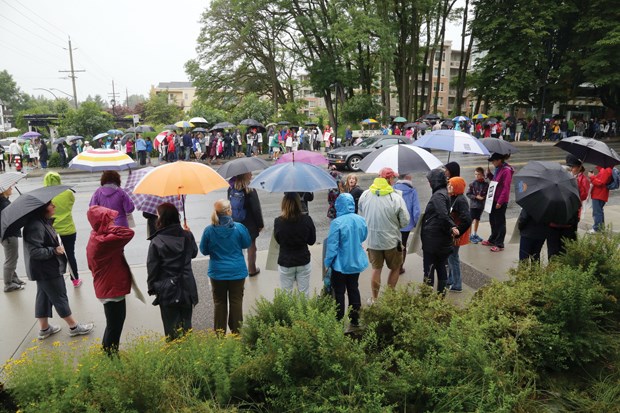School's out for summer - and maybe for fall if negotiations don't improve between teachers and the province.
North and West Vancouver school districts joined others across the Lower Mainland in cancelling all summer school classes this week after the two sides failed to make progress at the bargaining table.
The move affects about 1,300 students who had planned to take summer classes in the two school districts. The West Vancouver school district is preparing to issue 700 summer school refunds by the end of the summer, said Bev Pausche, spokeswoman for the school district.
"We know this is disruptive and we're frustrated as well," Pausche said.
Any student who was hoping to make up for a failing mark this summer will have to wait for September, according to Pausche.
"They'll have to reach out to their counsellors in the fall and re-jig their schedules.. .," she said.
The Labour Relations Board ordered remedial summer schools be considered essential - but only in the case of students who have failed and are unable to take the course the following year.
"There is no one in our district for whom that is the case," Pausche said, explaining that most summer students were pursuing advanced credit courses.
The situation is the same in North Vancouver, where about 600 students were registered for summer school.
Students in North Vancouver can continue to take online courses through the summer, but won't receive any teacher support.
Despite a salary proposal from the B.C. Teachers' Federation that narrowed the wage gap between the two sides, two mediators have declined to get involved in the talks so far.
"If we can get to mediation I think we have a good chance of solving this but it seems like the government only wants mediation with strings attached," said Rob Millard, president of the West Vancouver Teachers Association.
Education Minister Peter Fassbender blamed the BCTF's refusal to table its demands "in the same affordability zone as the other public sector agreements," as stalling negotiations.
Teachers may continue to picket in July and August, according to Millard.
"We want to keep this in the public eye," he said. "We don't want things to just sleepwalk through July and August and all of a sudden September's upon us and nobody knows what the hell schools are going to look like."
The funding shortfall in West Vancouver classrooms illuminates a provincewide problem, according to Millard. "People think of West Van as a wealthy community but the provincial funding is the same anywhere, and I just think it's a statement in itself that we're under-funded."
Approximately 15 per cent of West Vancouver's funding comes from non-government sources like sports academies and international students, according to Millard.
"You can imagine other less fortunate communities that don't have international programs, how hard they're hurting," he said.
While the BCTF and the province remain at loggerheads, CUPE school support workers, including special education assistants, inked a new deal with the province affecting 415 West Vancouver support staff workers. The deal provides a 5.5 per cent wage hike over five years.



